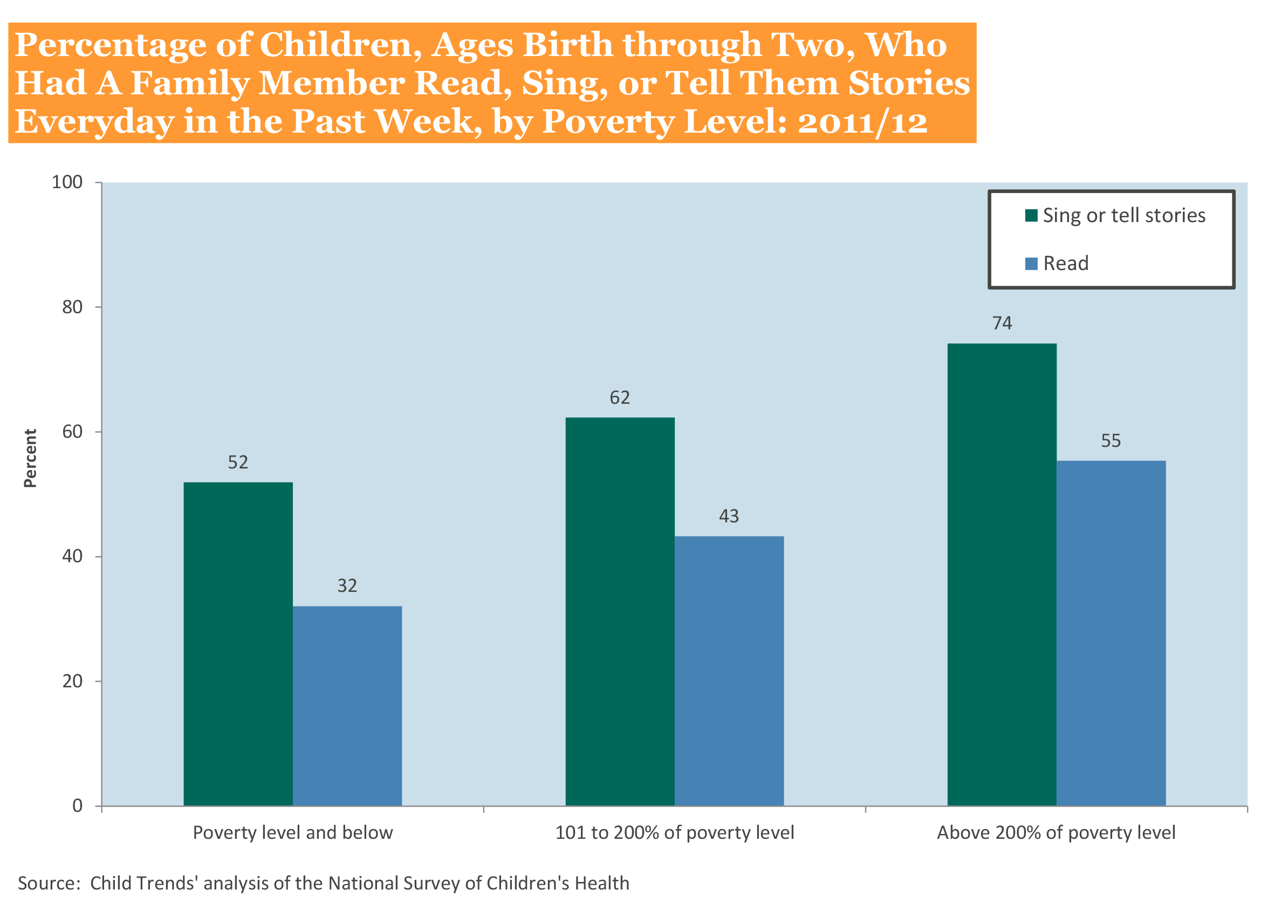Tips on Book Reading for Parents of Young Children
Hillary Clinton’s favorite graph of the year, as she told The Washington Post’s Wonkblog, was this one:
We agree that this was a great choice, and not simply because it’s Child Trends’ graph. Children’s language and literacy skills are important to their future success in school and life. Research has found that the development of children’s language and literacy skills in early childhood is an important predictor of children’s literacy skills at school entry. Research has also found that children’s reading ability in first grade is positively associated with their reading comprehension in late high school. There are multiple ways parents can help children develop their language and literacy skills in early childhood and enter school ready to succeed. One of these ways is for parents to read with their children.
What should parents know about reading to their children prior to school?
Read to your young children early and frequently. It is never too early to start reading to children. Early reading together has a positive influence on many aspects of language development, including communication skills, word knowledge, and later reading ability. Research finds that reading frequency is more important than social economic class in predicting language growth: parents should read to children almost every day. However, according to a recent analysis of National Survey of Children’s Health data, less than half of the children entering kindergarten this year were read to by a family member every day during the past week.
Modeling and talking about reading are also important. A recent study found that children are more likely to later read outside of school if their parents not only read to them while young but also gave them book recommendations, read themselves where children could see them reading, and had discussions with their children about books.
Establish a set reading time each day for you and your children. Research shows that parents who work full time read less with their children. Having a set routine, such as reading at bath time or bedtime, may help parents to remember to read every day with their children. Establishing routines helps children anticipate reading and understand that reading is important.
Choose books that match your child’s developmental stage and interests. When choosing books, make sure that they are not too difficult for your child to understand and that the book’s topic will be something your child will enjoy. Think about your child’s interests and choose books that match those interests. Here is a list of the types of books recommended for children ages zero to five by Reading is Fundamental, a non-profit organization that supports early reading.
There are a number of major programs in the U.S. that encourage young children’s language and literacy skills. Here’s the Clinton Foundation’s initiative focused on closing the word gap—the gap in the number of words young children from middle and upper income families have heard and the (lower) number heard by their peers from low-income families. It’s called Too Small to Fail. Reach Out and Read, another nonprofit, partners with doctors to prescribe books and encourage families to read together. Raising A Reader helps families build and sustain reading routines.
© Copyright 2025 ChildTrendsPrivacy Statement
Newsletter SignupLinkedInYouTube
